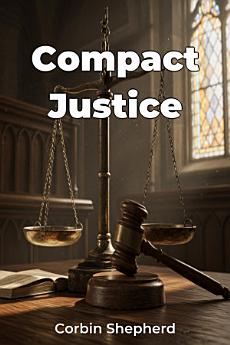Compact Justice
Meer oor hierdie e-boek
It delves into historical cases where rapid legal decisions have dramatically shaped history, highlighting how these instances continue to influence contemporary legal and political discussions.
The book uniquely focuses on these often-overlooked cases, diverging from analyses of lengthy legal battles to offer fresh insights into law, power, and justice.
The book explores how societal pressures and political ideologies can drive the need for quick legal resolutions, while simultaneously scrutinizing potential risks to due process.
For instance, the book analyzes historical examples ranging from the Salem Witch Trials to fast-tracked Supreme Court cases, illustrating that while efficiency is desirable, it must not compromise individual rights.
Structured progressively, the book first introduces the concept of compact justice, then examines historical cases, analyzes recurring patterns, and concludes with practical recommendations for today's legal systems.
Drawing from court records, historical documents, and legal scholarship, the book argues that lessons from the past can inform modern legal reform.
Ultimately, Compact Justice presents a compelling case for balancing efficiency and justice in a rapidly evolving world.








